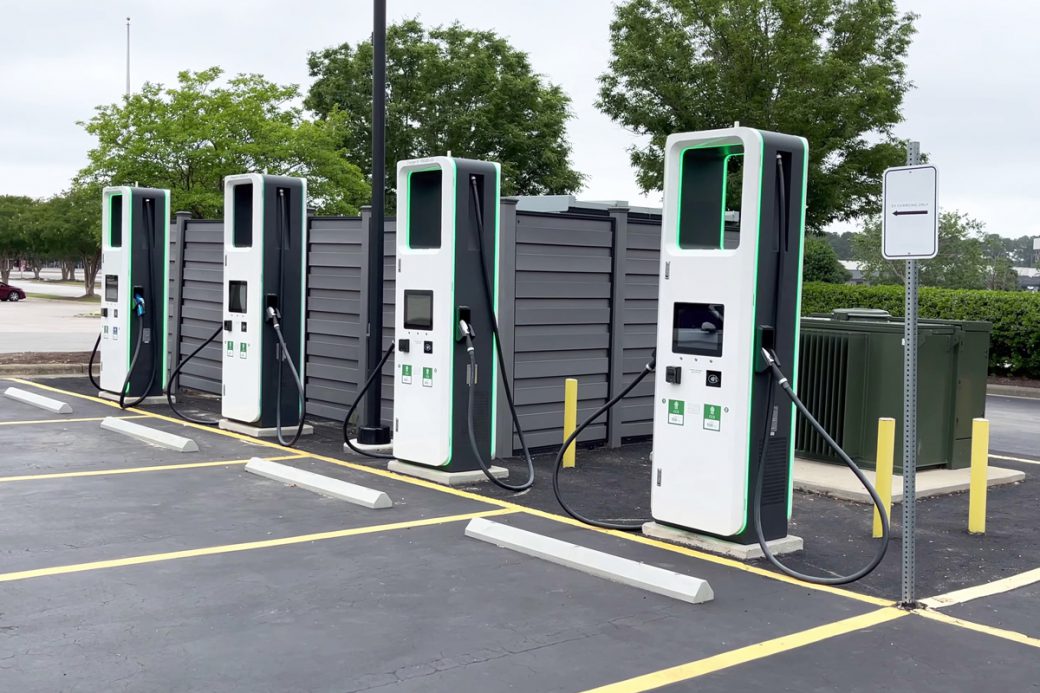Boards of condominium associations should anticipate that more owners and residents within their communities will be purchasing electric vehicles as they continue to rise in popularity. Several years ago, the Florida Legislature noted that the use of electric vehicles serves an important public interest by conserving and protecting the state’s environmental resources. The Legislature also provided that electric vehicles may provide significant savings to drivers, which continues to be true with the current rise in gas prices. The Legislature decided to encourage the use of electric vehicles. Finding that the participation of condominium associations is essential to these stated goals, the Legislature amended Chapter 718, Florida Statutes (the “Condominium Act” or “Act”) to address electric vehicle charging stations. Electric vehicles are powered by an electric motor that draws from rechargeable storage batteries, fuel cells, or other sources of electrical current. This necessitates the installation of charging stations for these vehicles, which are not nearly as commonplace as gas stations. Boards may reasonably expect to receive more frequent inquiries from residents regarding the installation of charging stations on the property. Anticipating these inquiries and planning ahead will allow the board to avoid the number of logistical issues of these charging stations, as well as potentially give the community an advantage with prospective buyers who compare available amenities when deciding where to purchase.
The association on its own accord may decide to make available, install, or operate an electric vehicle charging station upon the common elements or the association property, rather than wait for individual unit owners to request an installation of the same. The statute specifically provides that the installation, repair, or maintenance of an electric vehicle charging station does not constitute a material alteration or substantial addition to the common elements or association property. This means that this can typically be done via board vote alone. However, there are still a number of determinations the board needs to make, with guidance from association counsel and an electrical engineer or similar expert. For example, the board needs to establish the charges or the manner by which unit owners, residents, or even guests if allowed to use the station will pay for use of the charging station. Further, does the planned location of the charging station(s) impact existing parking spaces? The board should have association counsel review how the spaces are treated in the governing documents and determine whether the board has authority to reassign the same. An electrical engineer should also be involved to determine whether the planned locations, and even the association’s electrical systems, are able to accommodate such an installation.
The association may also wish to leave the installation or operation of electric vehicle charging stations to individual units owners. The statute makes clear that the declaration of condominium may not prohibit or be enforced by the board to prohibit any unit owner from installation a charging station within the boundaries of the unit owner’s limited common element or exclusively designated parking area. But there are numerous requirements a unit owner must following order to do so. Again, the board should work with counsel to determine how the parking spaces are treated in the documents, because this provision does not mean that a unit owner may install a station anywhere outside of their designated limited common element parking space. Although the board cannot prohibit such an installation, the board should consider amending the governing documents or adopting thorough rules regarding the installation, operation, maintenance, repair and other logistical issues that may arise from unit owner installations, such amendments or rules in accordance with the statutes.
For example, there are potential safety issues to consider. The association may deny such a request for an installation if there is proof that it will cause irreparable damage to the association property. The association will need to work with an expert to determine the same. Further, although Chapter 718 allows each owner to install a charging station, the association needs to determine how it may accommodate several requests and whether the property is able to safely accommodate multiple charging stations. The association must ensure that the owner’s charging station complies with all federal, state or local laws and regulations, including with safety requirements, consistent with the applicable building codes or safety standards. The association should also require a certificate of insurance listing the association as an additional insured on the owner’s policy for any claim related to the charging station. Having a detailed application process will allow the association to gather the information it needs to ensure the safety of the condominium prior to the unit owner installation a station.
Additionally, there are the issues surroundings the costs of these electric vehicle charging stations. If an individual unit owner is requesting to install a station on his or her own space, the unit owner is responsible for the costs of installation, operation, maintenance, and repair, including, but not limited to hazard and liability insurance. The electricity must be separately metered or metered by an embedded meter and payable by the unit owner installing such charging station or by or her successor. The association may enforce the payment of the costs installing, operating, maintaining, repairing, or the removal of the station if the owner decides there is no longer a need, via the lien procedures provided for in Section 718.116, Florida Statutes.
Lastly, the board may want to adopt certain reasonable architectural standards that govern the dimensions, placement, or external appearance of the electric vehicle charging station, provided that such standards cannot prohibit the installation of such charging or substantially increase the cost thereof.
Before the association is taken by surprise by a request from an owner or from multiple owners regarding electric vehicle charging stations, the Board should consider the above issues. The association may wish to have counsel put together a written policy about how such issues should be addressed, and an agreement form that owners will be required to sign so that their installation complies with the statute and the governing documents.

Karyan San Martano
Attorney at Law, Becker
Ft. Lauderdale | bio



